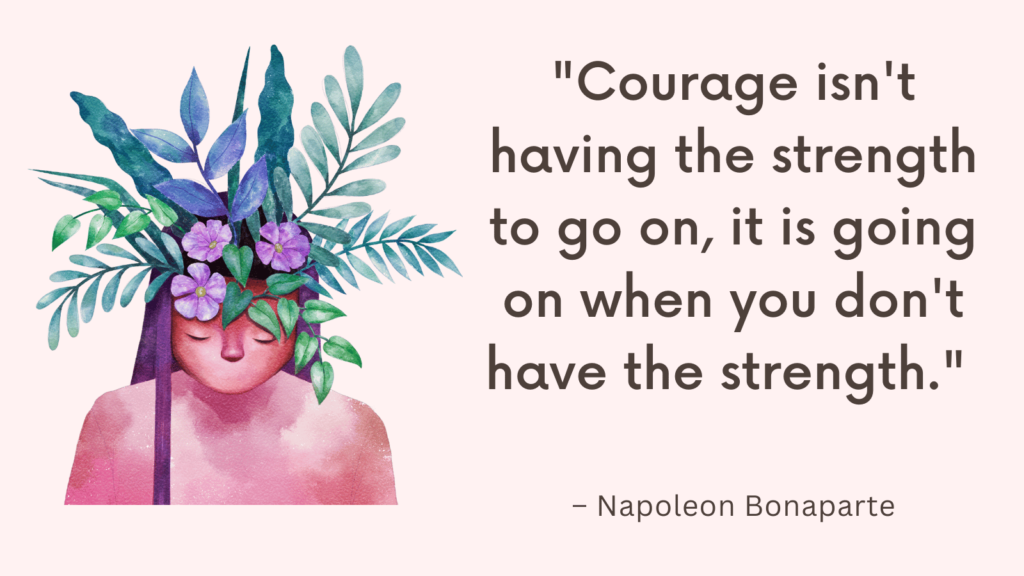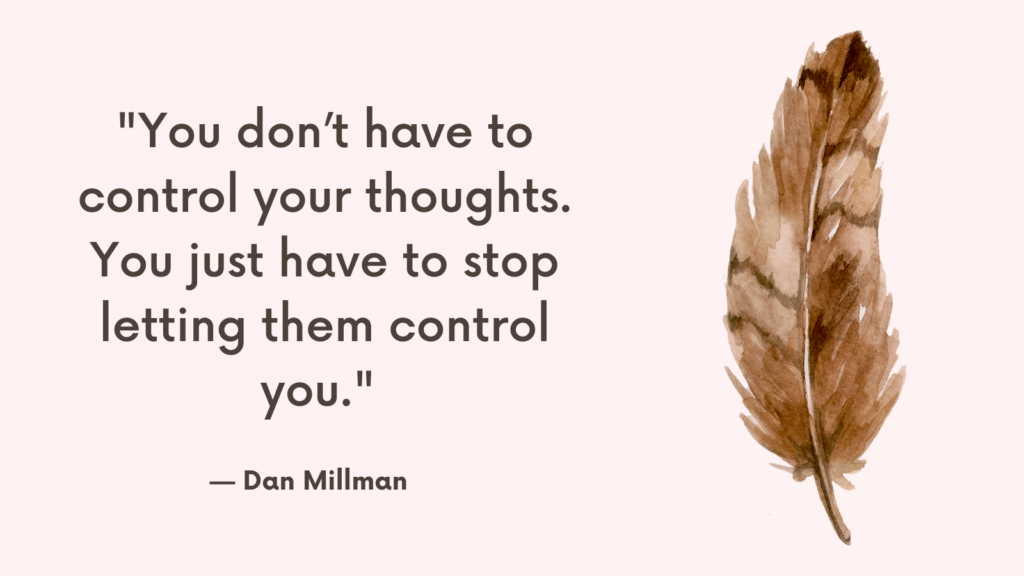In this post, you’re going to learn all about affective responsibility.
What Is Affective Responsibility?
Affective responsibility refers to taking ownership and accountability for one’s emotions, as well as recognizing the impact of those emotions on oneself and others.
It involves being aware of and understanding how our emotions influence our thoughts, behaviors, and interactions with others.
Affective responsibility also entails recognizing that we have the power and agency to regulate and manage our emotions in a way that promotes personal well-being and healthy relationships.
When we are affectively responsible, we acknowledge that our emotions are our own responsibility and not solely the result of external circumstances.
We understand that while we may not have control over what triggers our emotions, we do have control over how we respond to those emotions.
This recognition empowers us to take proactive steps towards emotional regulation, rather than passively allowing our emotions to dictate our thoughts and actions.
Affective responsibility also extends to our interactions with others. It involves understanding that our emotions can impact those around us and being mindful of how we express and communicate our feelings.
By adopting affective responsibility, we strive to express our emotions in a healthy and constructive manner, taking into account the feelings and needs of others.
Related: Top 7 Tips On How To Create A Conscious Relationship Using ACT
Affective Responsibility Examples
Here are some examples of affective responsibility in various situations:
1. Affective Responsibility In Relationships
– Taking ownership of your emotions and communicating them effectively to your partner, rather than expecting them to guess or mind-read.
– Recognizing patterns of emotional triggers and taking proactive steps to manage and regulate your emotional reactions during conflicts.
– Expressing gratitude and appreciation for your partner’s positive actions, fostering a positive emotional climate in the relationship.
– Avoiding emotional manipulation or blame-shifting, and instead taking responsibility for your own contributions to relationship issues.
2. Affective Responsibility In Workplace
– Recognizing and managing your frustration when facing a difficult project or tight deadline, rather than taking it out on colleagues.
– Taking responsibility for your emotions by seeking support or engaging in stress management techniques when feeling overwhelmed at work.
– Communicating assertively and respectfully when addressing conflicts or disagreements with coworkers, instead of resorting to aggressive or passive-aggressive behavior.
– Showing empathy and understanding towards colleagues who may be struggling, rather than dismissing or invalidating their emotions.
Related: Best 55 Positive Affirmations for Work Stress
3. Affective Responsibility In Parenting
– Modeling emotional intelligence and affective responsibility for your children by openly discussing and validating emotions within the family.
– Teaching children healthy ways to express and regulate their emotions, such as through deep breathing exercises or journaling.
– Recognizing your own emotions and taking breaks when needed, rather than reacting impulsively or aggressively towards your child.
– Being mindful of the emotional impact of your words and actions on your child, and making efforts to provide a nurturing and supportive environment.
4. Affective Responsibility In Self-Care
– Taking responsibility for your own emotional well-being by engaging in activities that bring joy and reduce stress, such as hobbies, exercise, or meditation.
– Recognizing and challenging negative thought patterns that contribute to emotional distress, and replacing them with more positive and realistic thoughts.
– Seeking professional help, such as therapy or counseling, when experiencing prolonged or intense emotional difficulties.
– Practicing self-compassion and forgiveness towards yourself for past mistakes or failures, rather than dwelling on self-blame or guilt.
Related: Best 100 Self Care Affirmations To Honor Yourself
5. Affective Responsibility In Social Interactions
– Being aware of your emotional boundaries and practicing assertiveness in social situations, such as saying no when needed or speaking up for yourself.
– Demonstrating empathy and active listening when someone shares their emotions, rather than dismissing or minimizing their experiences.
– Recognizing and managing your own emotional biases, prejudices, or judgments when interacting with people from different backgrounds.
– Taking responsibility for any harm caused by your words or actions, and making amends where necessary, in order to promote healthy and respectful relationships.
Affective responsibility: Top 10 Ways to Cultivate It
Here are some steps you can take to cultivate affective responsibility in your life:
1. Self-awareness
Start by developing self-awareness to understand your emotions, triggers, and patterns of behavior.
Pay attention to how you feel in different situations and explore the underlying thoughts and beliefs that influence your emotional responses.
2. Mindfulness
Practice mindfulness to stay present and non-judgmentally observe your emotions as they arise.
This allows you to respond consciously rather than react impulsively.
Mindfulness techniques like meditation or deep breathing can help regulate emotions and build resilience.
Related: Best 6 Mindfulness Exercises For Beginners (+FREE Resources)
3. Emotional regulation
Learn strategies for managing and regulating your emotions effectively.
These can include techniques like deep breathing, progressive muscle relaxation, journaling, engaging in hobbies, or seeking support from loved ones.
Experiment with different methods to find what works best for you.
4. Acceptance
Embrace the idea that all emotions are valid and part of being human.
Allow yourself to feel and express a wide range of emotions without judgment or suppression.
Avoid labeling emotions as “good” or “bad,” but instead see them as signals that provide valuable information about your needs and experiences.
Related: Rational Detachment – What Is It and How to Cultivate it
5. Taking responsibility
Acknowledge that you have control over how you respond to emotions.
Recognize that you are not responsible for the initial emotion itself, as it may arise from external circumstances, but you are responsible for the choices you make and how you express those emotions.
Take responsibility for your actions and their impact on yourself and others.
6. Healthy communication
Develop effective communication skills to express your emotions and needs assertively and respectfully.
Use “I” statements to express how you feel and avoid blaming others for your emotional state.
Seek to understand others’ perspectives and engage in active listening to foster healthy and empathetic connections.
Related: 4 Essential Keys To Effective Communication
7. Reflect and learn
Regularly reflect on your emotional experiences and interactions with others.
Consider how you could have responded differently or more effectively in certain situations.
Learn from your experiences and use them as an opportunity for personal growth and development.
8. Seek support
Reach out to friends, family, or professionals when needed.
Sometimes, addressing deep-rooted emotional patterns may require the guidance of a therapist or counselor.
They can provide insights and strategies tailored to your specific needs and help you navigate challenges more effectively.
9. Practice self-care
Prioritize self-care activities that promote emotional well-being.
Engage in activities that bring you joy, reduce stress, and promote relaxation.
Set boundaries to protect your emotional well-being and ensure you have time for self-reflection and self-care.
Related: 35 Self Care Saturday Ideas To Try This Weekend
10. Maintain resilience
Understand that setbacks and challenges are a normal part of life.
Build resilience by focusing on your strengths and developing coping mechanisms to bounce back from difficult emotions or situations.
Cultivate a growth mindset that embraces challenges as learning opportunities.

Conclusion
Affective responsibility is about recognizing and accepting that we have the power to regulate our emotions and acknowledging the influence of our emotions on ourselves and others.
By embracing affective responsibility, we can cultivate emotional well-being, promote healthier relationships, and enhance our overall quality of life.



